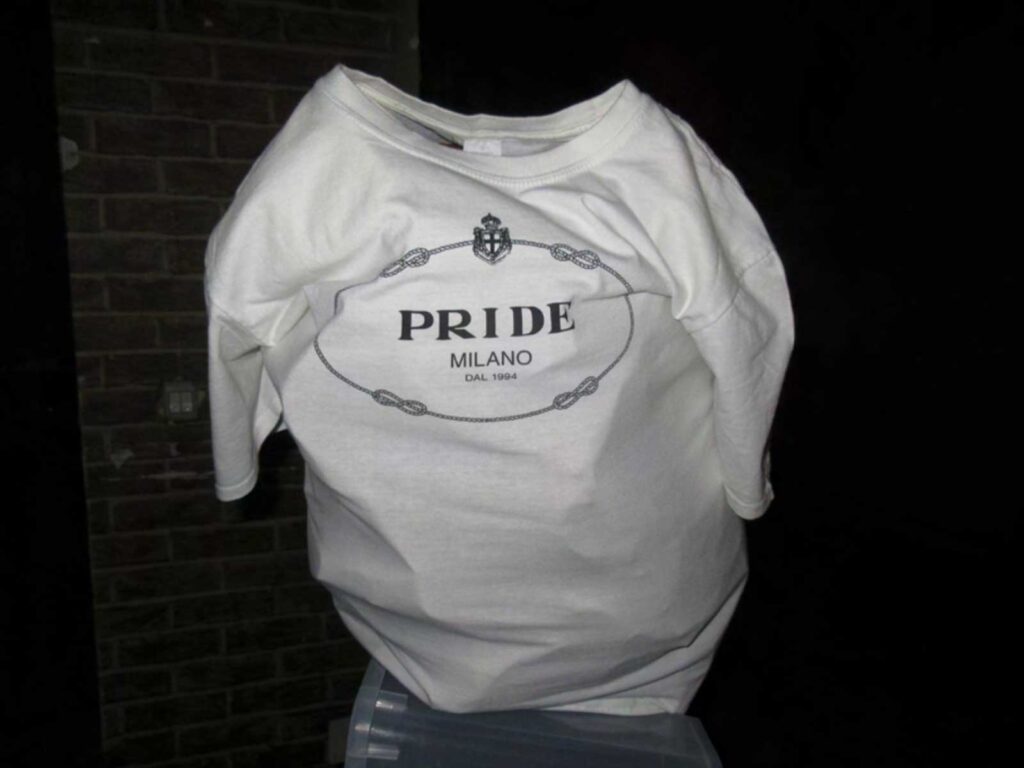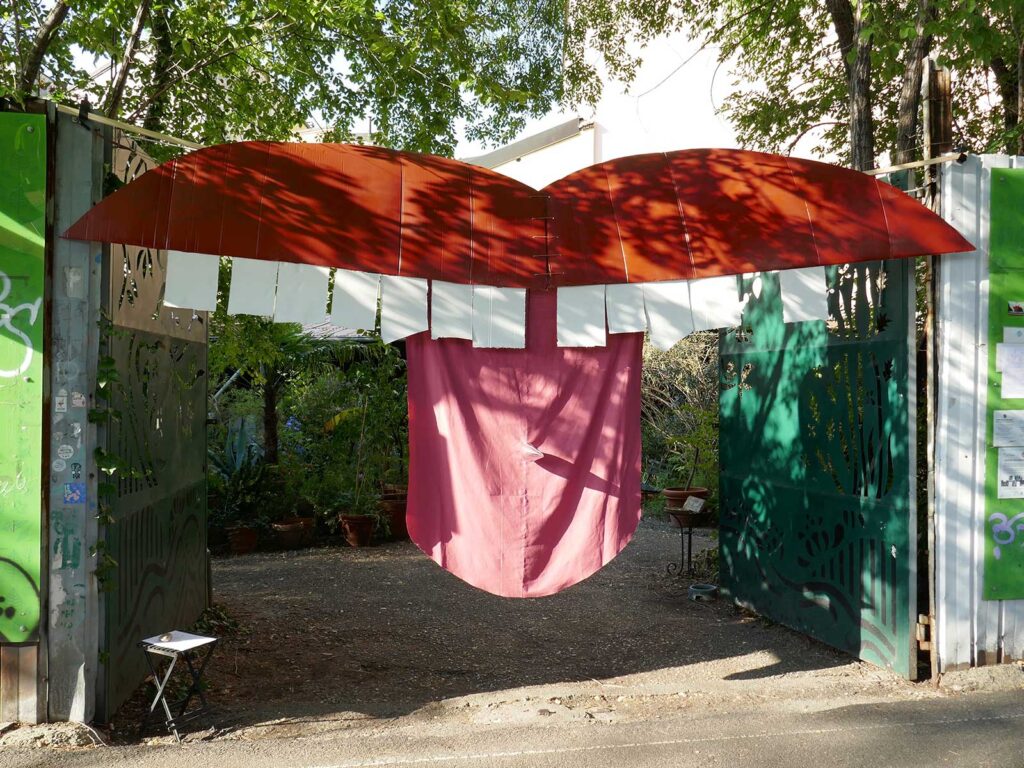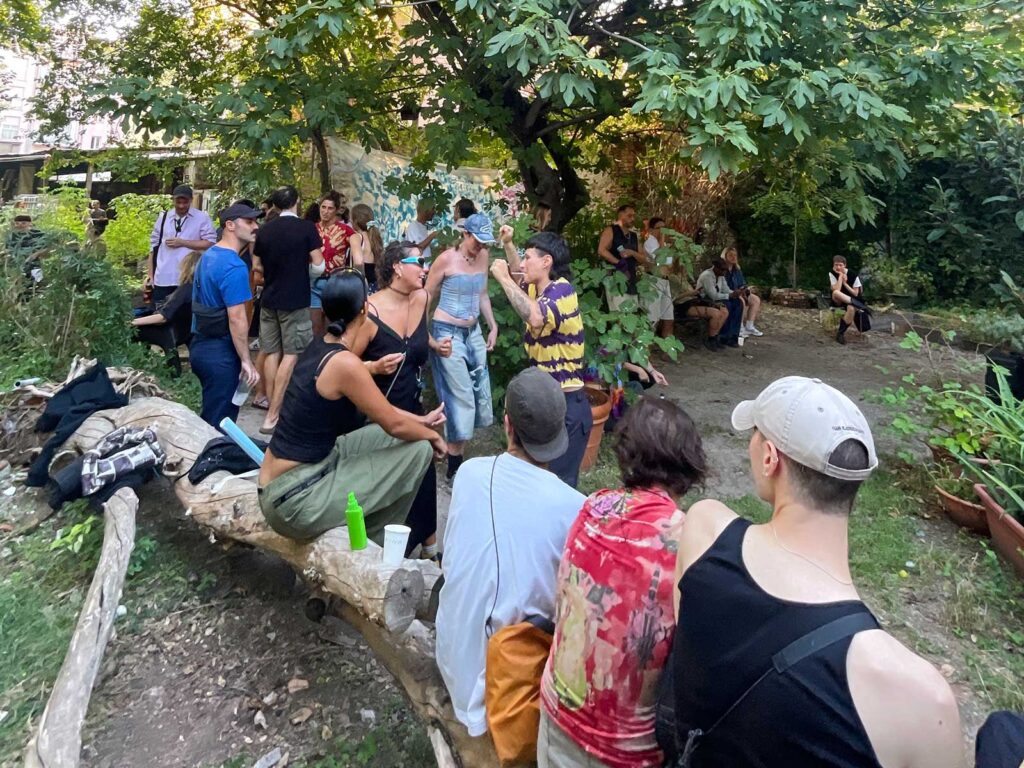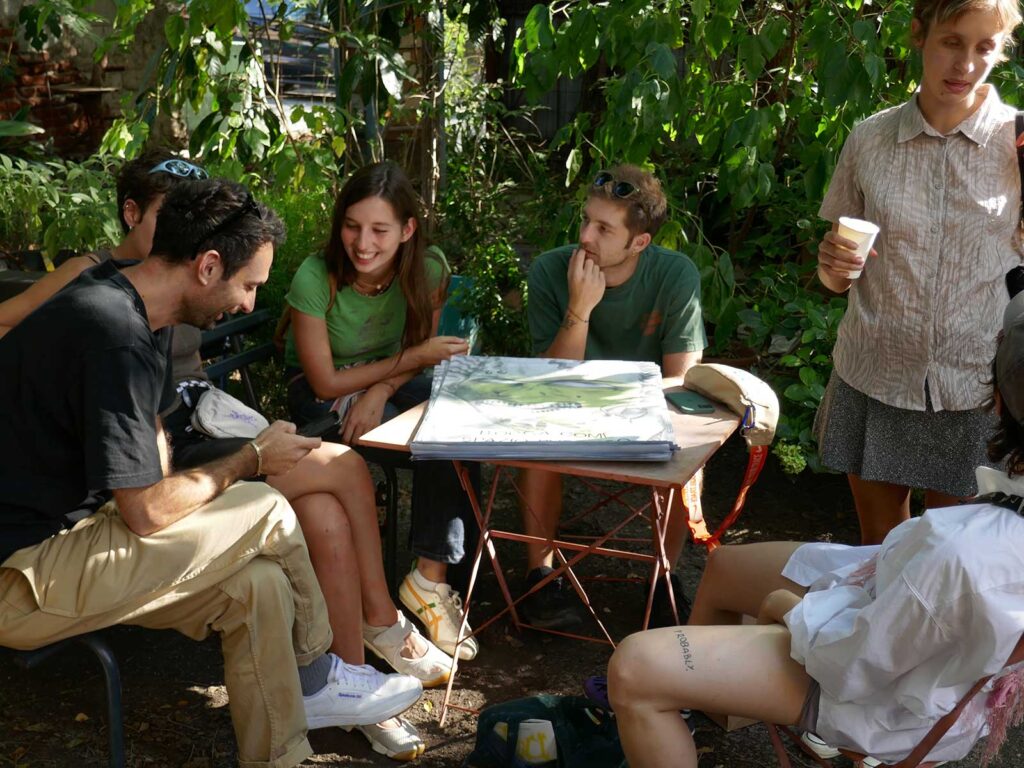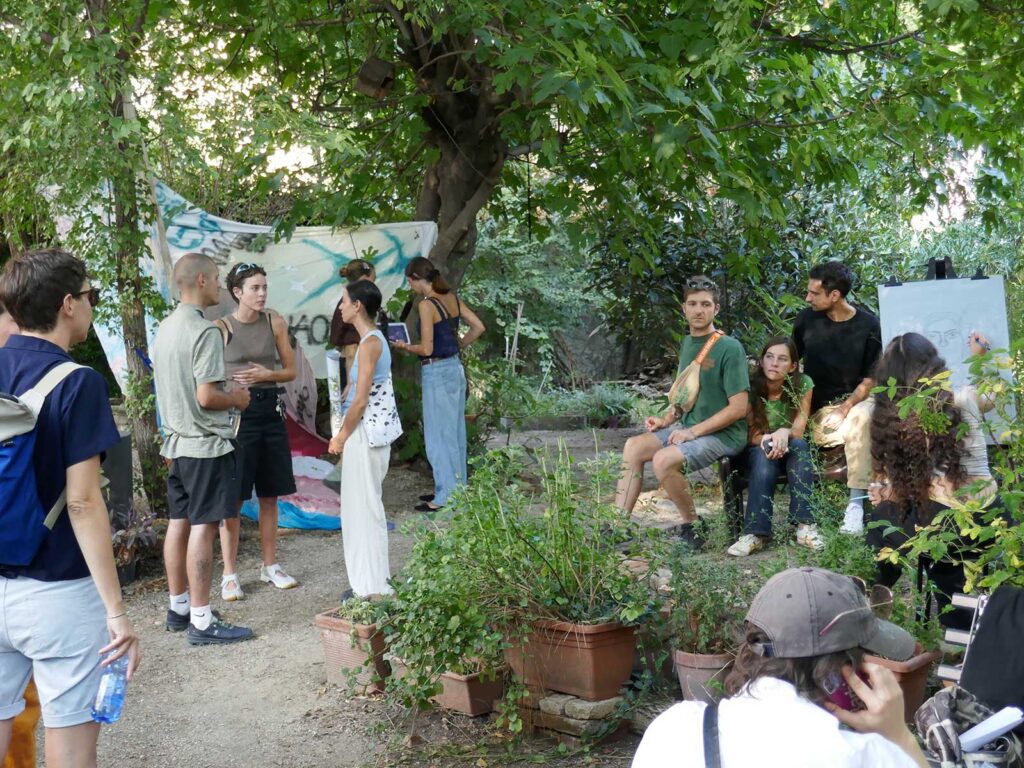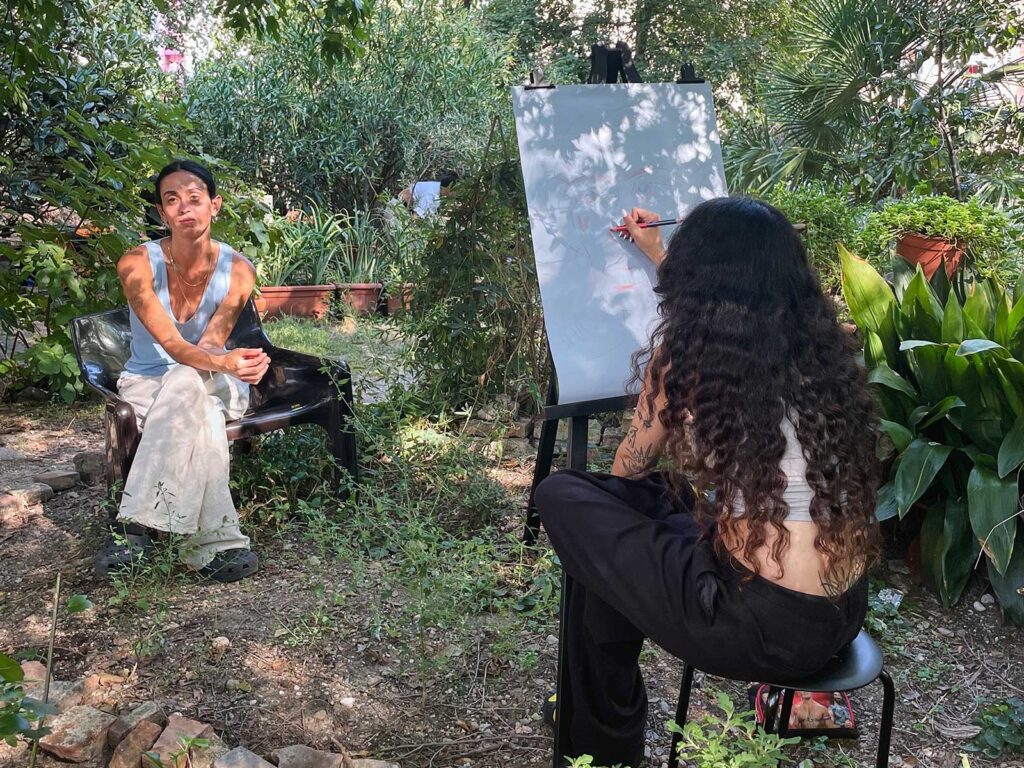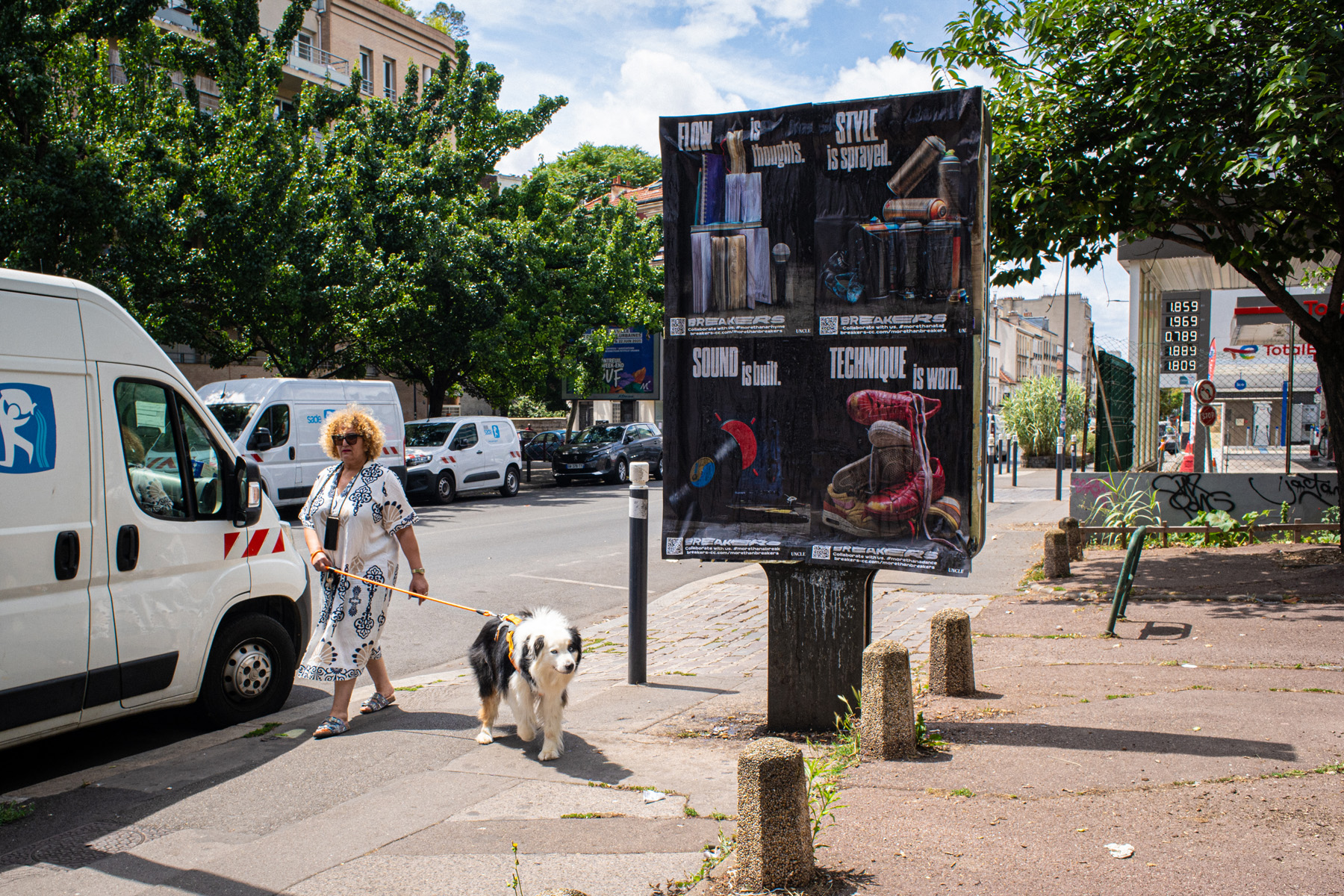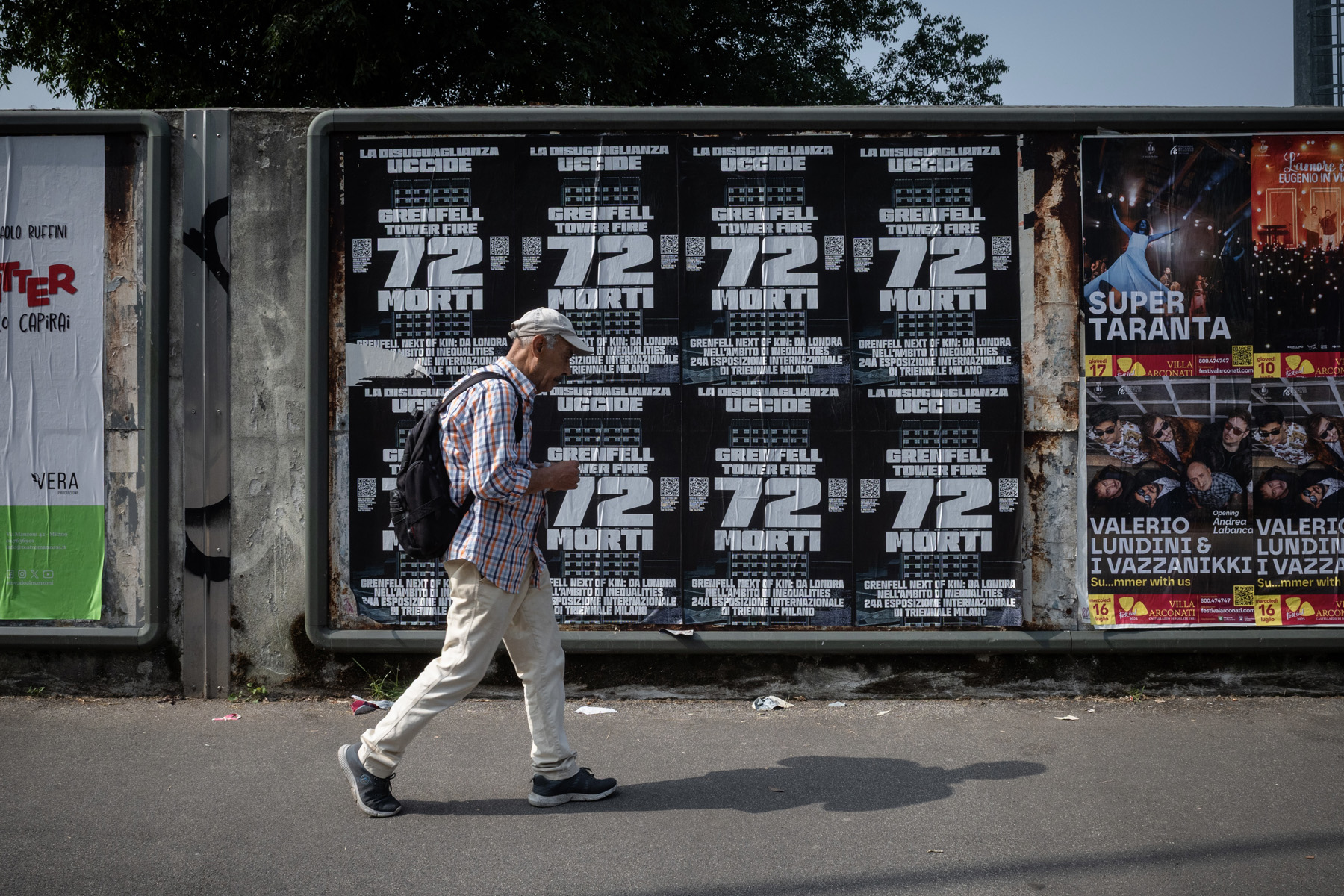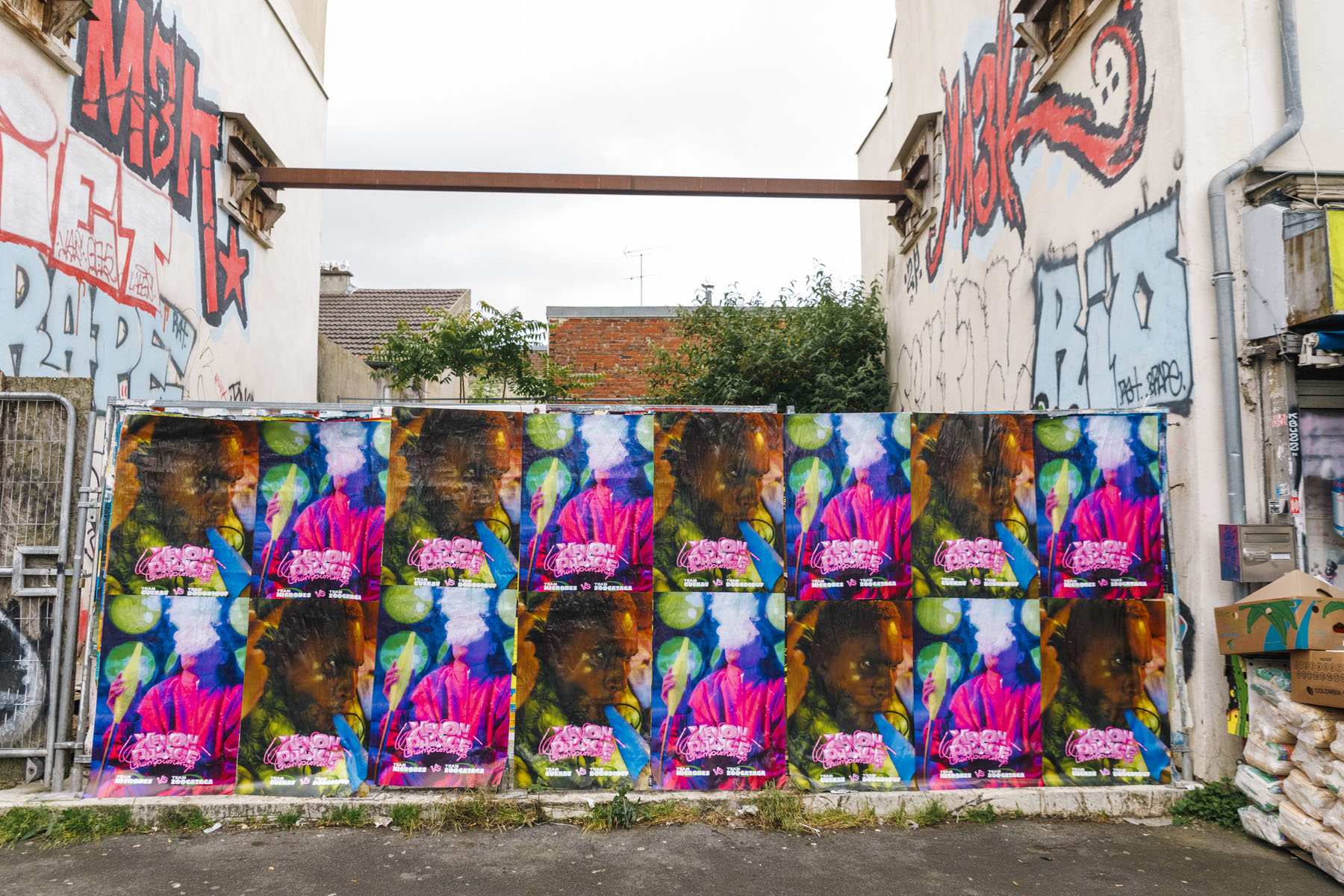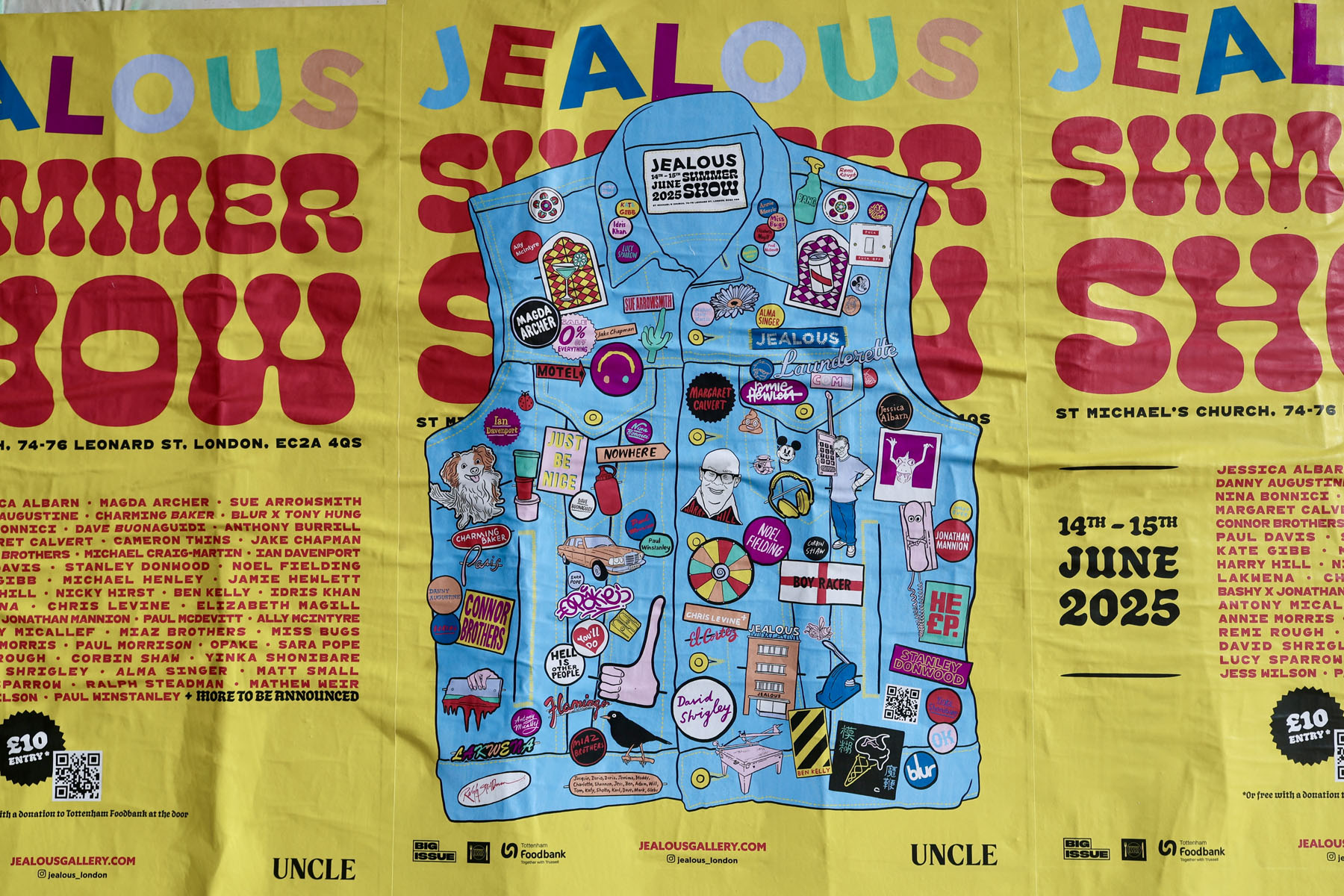
UNCLE’s latest project Congregations saw the pop-up event Lingua Lunga take place in Milan. Alongside the curators Brenna Horrox and Ludo Bulciolu, queer artistic platform TOMBOYS DON’T CRY helped facilitate the day that saw a collection of LGBTQ+ performers, artists and creatives come together in a day of community. Read a full breakdown of the day here.
TOMBOYS DON’T CRY were founded by artist Dafne Boggeri, DJ S/HE Mark Rebel and photographer Alien. They have been “promoting day and night adventures for lesbian on ecstasy, wonder queers, absolute beginners & gxrls interrupted since 2011. We hope to foster a post-identity agenda of research, sound, visual and performative experimentation connected to the LGBTQAIXYZ community”.
UNCLE talked to the founders about the history of the collective, including beginnings and past events that have led them to where they are now, eventually leading to Congregations presents Lingua Linga in Milan at the end of this summer.
WHY DID YOU DECIDE TO START THE COLLECTIVE?
It was born after the experience of Pornflakes Queer Crew, the first Italian queer collective started at the beginning of the 00s in which both Dafne and Mark were part of, and it was created out of a desire for more representation at the intersection of art, music and activism.
WHAT ARE SOME PAST EVENTS THAT YOU HAVE PUT ON?
We’ve worked on so many different projects throughout these years, from putting up parties, to a brutalist nail bar salon (at a bar, in contemporary art institutions, in artist-run spaces and at festivals), to billboards, readings, exhibitions and pop-ups for our hacked apparel.
In the recent years, we have curated events that embody our core values of artistic experimentation and the need of taking up spaces.
We’ve subverted a couple of exhibitions by extending our invitation to other artists as a way of hacking the system, its hierarchies and elitist approach. For this we curated the group show “BODY LANGUAGE” at FUORI Art Quadriennale 2022, at Palazzo delle Esposizioni, Rome. An initiative that challenged the institution norms. Following it there has been “SWITCH THE WITCH” at La Rada, Locarno, Switzerland in 2022 exploring themes like alterity, transformation, and magical realism from a transfeminist perspective, highlighting sisterhood, difference, and creativity as a way of healing, all while acknowledging the historical trauma that continues to influence our lives.
In 2022 we started to commemorate a significant moment in Italy’s human rights struggle. On April 5th 1972, there has been the first public representation of LGBTQ+ dissent in response to the International Congress of Sexology of the CIS, defining homosexuality as a “Deviant Human Sexual Behaviours”.
TUTTO QUELLO CHE NON C’É ANCORA, 2022 took place at “La Fossa,” an historic cruising spot in the very centre of Milan. Amidst urban dynamics and gentrification pressures, this location remained a spot for cruising and sexual encounters. The gathering included a daytime exhibition that culminated in a queer rave XS XS right in front of La Triennale of Milano, echoing the spirit of 1972.
TUTTO QUELLO CHE NON C’É ANCORA, 2023 took place in Porta Venezia Park, Milan, promoting an informal queer reading, where people could spontaneously gather to read their favorite pieces. This was an ode to community and to give space and amplify alternative voices. Set within an octagonal gazebo, the space is always accessible until the park closing hour.
We believe these events have left a meaningful impact on the people who attended them, inspiring new ways of coexisting.
DOES THE MILAN ART AND CULTURE SCENE REFLECT THE CITY AND ITS INHABITANTS?
There is a concerning lack of critical thinking and analysis within Milan’s cultural milieu, or rather an intentional (and questionable) direction towards an over saturation of contents.
The art and culture scene often operates on the surface, where superficiality and the relentless pursuit of a crowded “programme” led to an excess of events that often lacks a genuine connection to a territory and a community it should serve. Financial support and networks connecting with other national and international entities are missing, leaving events and initiatives isolated burst, meant to entertain rather than support.
This behaviour is exasperated and a consequence of the so-called centre-left political landscape, often non-existent or fraught with controversy, making it difficult to truly see who is who and who does what.
In addition, the scarcity of accessible spaces to flourish and the insufficient support, can force individuals and groups into a race for any opportunity, sometimes making compromises that undermine the integrity of their work.
HOW COULD THIS SCENE BE CHANGED FOR THE BETTER?
A brighter future for Milan can only come with a collective spirit of change.
Understanding spaces as not mere venues, diversify and democratize these places. Challenging the dominance of well- established institutions. Transparency and accountability are vital, ensuring that cultural spaces are run with the broader community’s interests at heart.
Creatives must assert their role as indispensable contributors to the fabric of contemporary society, and not as players to exploit only when needed. Their work goes far beyond aesthetic expression; it shapes the identity and soul of a city. An effort should be made to seek recognition, not just through words, but through tangible actions, policies, beyond rhetoric.
This synergy holds the potential to bring a better future.
HOW HAS THE CREATIVE SCENE CHANGED IN MILAN SINCE YOUR FORMATION?
Since our formation, we’ve witnessed a transformation in Milan’s creative scene that is marked by both positive developments and challenges.
One significant change has been the decrease in independent spaces for cultural expression. Milan, like many other cities, has faced pressures of gentrification and commercialization, which have made it increasingly challenging for independent artists and cultural actors to secure affordable venues. This shift has limited the diversity of voices and expressions that once thrived in such spaces, potentially impacting the overall cultural richness of the city.
It’s very hard to survive out here but we’ve found growth in the awareness of the term “queer” leading to more inclusion, even within the LGBTQAI+ community, that in the early 2000s struggled to accept anyone outside the binary spectrum.
WHAT INSPIRED THE EVENTS CONCEPTION?
It all started by the invitation of curators Ludovica Bulciolu and Brenna Horrox to work on the idea of public spaces, what they mean and how to translate and include them in artistic practices.
When gathering ideas for the event, we decided to do something local and engage with a space that we’ve been crossing the path before (one of TBD’C co-founder Dafne Boggeri has collaborated with them in the past). We believed we could share a mutual inspiration from: the self-managed garden space of Isola Pepe Verde who hosted the event is one of the last public green spaces in the neighbourhood Isola, in Milan and it comes from a long history in the art, with artists who first occupied the space in 2001 under the name Isola Art Centre while promoting creative practices. When we presented the idea of the event, they were thrilled: a circle back to the beginning, artists, makers and musicians, inhabiting the garden again.
Isola Pepe Verde represents a community effort to reclaim and transform public space. It is taken care by the work of many volunteers and is the perfect example of a place that still exist despite the aggressive constructions planning happening around it.
WHAT IS THE PURPOSE OF THE EVENT?
We symbolically transformed the entrance of Isola Pepe Verde in a big mouth, where people were invited to enter and engage in conversations, actions, and listening in an intergenerational gathering.
The purpose was to create a moment to co-exist and create new community narratives that could then be shared and used as a pivotal experience for many other similar happenings. We encouraged people to explore their senses, movements, and desires by question normative social behaviours imposed by gentrification and privatization of public spaces.
WHY IS THE EVENT NAMED ‘LINGUA LUNGA’?
We wanted to work on something local, both geographically and conceptually. TOMBOYS DON’T CRY is a queer trans-feminist platform that works with experimentations and tries to challenge normative attitude and ways thinking. Our choice of name originates from the appropriation of an Italian colloquial term that literally translates with “long tongue” but the meaning is closer to “loose tongue” or “big mouth” in English. This name is used as a figure of speech to describe someone with a ‘bad attitude,’ someone who can’t keep information to themselves. In the context of the event ‘Lingua Lunga’ seeks to reclaim the expression referring to a deformed body part (the long tongue indeed) associated with prejudices, and challenging the negative connotations associated with the term instead.
HOW CAN WE BE MINDFUL IN A SPACE LIKE THIS?
Our biggest aim is to create a safer space for everyone to engage and contribute positively to the atmosphere. Through the years we’ve been able to build a community that joins us and that is considered and respectful to others, not only to human beings, but plants and the overall eco-system around. Empathy is perhaps the key to it all.
HOW IS THIS EVENT TIED TO THE CITY OF MILAN?
TOMBOYS DON’T CRY work focuses on discovering and bringing back to the map places that are forgotten or unseen, and we put a lot of effort working on the territory and activating it in surprising yet respectful ways.
In a city where commercial and private spaces have taken over, Lingua Lunga offered a glimpse to a mostly unknown green space in one of the most cantered and gentrified neighbourhood in the city.
The event addressed Milan’s introverted character by creating a tangible and accessible moment for artistic expression, fostering a sense of belonging.


